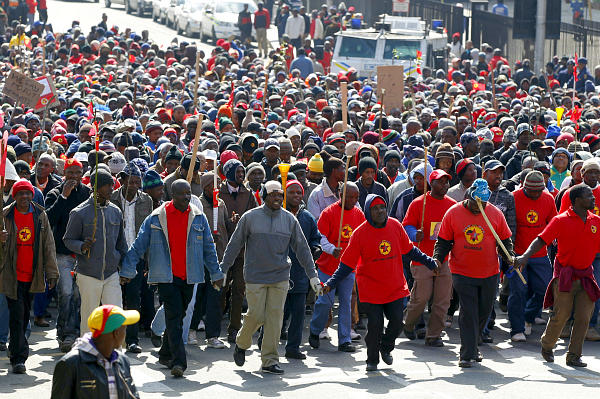http://www.bbc.co.uk/news/business-24419570
A-month long strike has finally come to an end as a 10% increase this year and 8% increases for the next two years has finally been agreed upon by the National Union of Metalworkers in South Africa. The strike started like many others, in which a the workers felt they were being a terribly low minimum wage that did not agree with their working effort and hours. However, the strike seemed to cause large problems in the industry due to the multiple disruptions and conflicts. It has been said that exports have been affected primarily as the halt in production failed to meet its export quota.
It has even been stated that large companies such as BMW have stopped future plans to expand in South Africa. This can be very damaging for the industry in many ways, as it provides the government with less revenue and the expansion may have caused job opportunities leading to a decrease in unemployment in South Africa. This shows the power and proportions of the strike, also leading to why the 10% pay deal was agreed by the opposing forces.An overall loss of 2 Billion Dollars in lost output from companies such as BMW, Ford, Nissan and General Motors. This affects the economic growth of South Africa and due to strikes in other industries such as the mining, construction and aviation industry, it raises many concerns about the stability and the rate of growth in the South African economy. These ongoing waves of strikes have been a big issue with the domestic and international companies.

